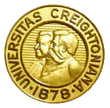SACRAMENTO -- After
a lengthy court battle, the Department of Consumer Affairs received
authority to permanently shut down a school that has been operating
illegally since June 1997.
Marin County Superior Court Judge Lynee Duryee entered a final
judgement against Columbia Pacific University (CPU) on February
21, 2001, the Bureau for Private Postsecondary and Vocational
Education (BPPVE) announced.
CPU is a private educational institution offering distance-learning
programs from the bachelor's through the doctorate level, and
has been operating without State approval since June 25, 1997.
"We hope this order will provide long awaited information
and resolution for CPU students. The Bureau will monitor closely
CPU's compliance with the court's decision, " said Michael
Abbott, Bureau Chief.
The judgment ordered CPU to do the following:
- Pay $10,000 in penalties to the Bureau
- Permanently cease operating or offering any educational programs
in California
- Permanently cease issuing any INS Certificate of Eligibility
for Nonimmigrant student status (INS Form 1-20)
- Notify all students enrolled from June 25, 1997 to December
1, 2000 of the permanent injunction and of their right to a
refund by March 15, 2001
- Provide the Bureau with the names and addresses of all students
to whom the notice was sent by March 20, 2001
- Provide refunds to all students within 30 days of their request
- Provide a status report to the Court by June 30, 2001
- Allow the Bureau to inspect and audit CPU's records anytime
prior to June 30, 2001 to determine whether CPU has complied
with the Court's orders
Failure to comply with the above order constitutes contempt of
court, which is punishable by a fine and/or imprisonment.
Private postsecondary and vocational schools are regulated by
the Bureau, which approves schools to operate in California. The
Bureau's predecessor agency, the Council for Private Postsecondary
and Vocational Education conducted a review and assessment of
CPU's degree-granting programs and denied its approval to operate.
An administrative law judge upheld the council's denial on June
10, 1997. The Council's denial was upheld by the California Court
of Appeals on July 11, 2000. (See the CPU Timeline of Events on
the BPPVE Web site.)
Students or former students may contact CPU with their refund
requests at 885 Olive Ave., Suite C, Novato, CA 94949. Those who
do not receive timely refunds, dispute the amount, or have other
issues they are unable to resolve with CPU, should write to the
Bureau for Private Postsecondary and Vocational Education, 400
R Street, Suite 5000, Sacramento, CA 95814 or see the Bureau's
Web site for a complaint form.
Five Key Options for Students Faced with a School Closure:
- TRANSFER
Students can transfer credits to another school offering similar
courses. They should contact other schools about transfer eligibility.
For a list of degree-granting schools approved by the Bureau
for Private Postsecondary and Vocational Education, students
can visit the BPPVE Web site at www.dca.ca.gov/bppve.
- TEACH-OUT
Students who are within 90 days of graduation may be able to
complete their studies at the closing school or other schools.
BPPVE works with the closing school to explore whether this
"teach-out" option can be made available.
- SCHOOL REFUND
Students can request a refund of tuition from the school in
writing. BPPVE investigates whether closing schools may have
violated state or federal law. If so, students may be eligible
for a refund of all or part of tuition and other costs, such
as those for books. More information on a particular school's
refund policy can be found in its course catalog and/or enrollment
agreement.
- DISCHARGE OF LOAN
If students don't transfer or complete studies and they've received
a federally subsidized loan, they may be eligible to have the
loan forgiven. Students should contact their lender or the U.S.
Department of Education at 1-800-4-FEDAID or obtain more information,
including a loan-discharge application, online at www.ed.gov/offices/OSFAP/Students/closedschool/index.html.
California residents who paid their tuition with private loans
or cash can request compensation from California's Student Tuition
Recovery Fund (STRF).
- STUDENT TUITION RECOVERY FUND (STRF)
As a last resort, California residents who cannot obtain a refund
or federal loan discharge can file a Student Tuition Recovery
Fund claim with the Bureau. BPPVE will review the application
to determine eligibility and the amount of refund that may be
available.
Students are encouraged to contact the Bureau for Private Postsecondary
and Vocational Education, 400 R Street, Suite 5000, Sacramento,
CA 95814 or see the Bureau's Web site at www.dca.ca.gov/bppve
for assistance.
The Bureau regulates approximately 3,000 private postsecondary
schools. The Bureau is part of the Department of Consumer Affairs.
To check on the approval status of a private postsecondary school
under the Bureau's jurisdiction, please call the Bureau at (916)
445-3427 or send faxes to (916) 323-6571. You can also download
complaint forms at the Bureau's Web site: www.dca.ca.gov/bppve.
[Related Story Links:
Permanent
Injunction Against Columbia Pacific University
December
2000 - Update: Columbia Pacific University
December
2000 - Updated Timeline of Events: CPU
May
2000 - Update: Columbia Pacific University Closure Order
Timeline
of Events: CPU
January
2000 - Press Release: CPU Ordered to Close Permanently
March
1999 - Press Release: CPU Ordered to Close ]
![]()
![]()
![]()






